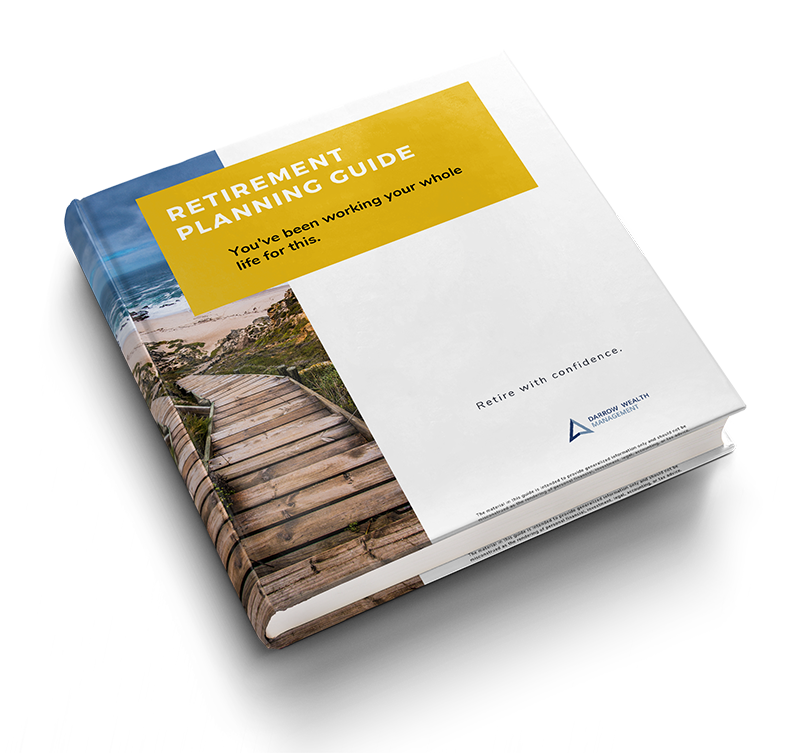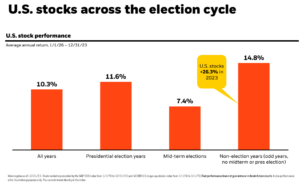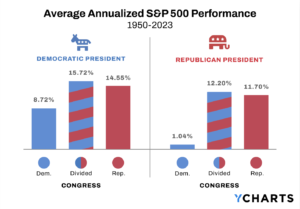Investors can save over three times as much in a 401(k) compared to an IRA, without even including employer contributions. So, it’s little surprise that most Americans rely on employer plans to save for retirement. Given the reliance on 401(k) or 403(b) savings, investors may wonder: should I pay someone to manage my 401(k)?
As with nearly everything in personal finance, the answer is: it depends. Here are some situations when having a financial advisor manage your 401(k) may make sense and when to consider managing the account yourself.
Should I manage my own retirement account?
There are pros and cons to having a professional investment advisor manage your 401(k). And for some, it may not make sense. After all, not everyone needs a financial advisor. When it comes to making decisions about your finances, focus on the intersection of what matters (e.g. is it material to your financial standing) and what you can control. Using that lens, here’s when to consider managing your own retirement plan – and when to ask for help.
Situations where you might not need a financial advisor to manage your 401(k)
Consider the size of the account, both in dollar terms and relative to your other investment accounts
If you’re starting a new job, you’re likely starting from zero in your new 401(k). Since target-date funds can offer a lot of diversification own their own, it’s often a good starting point for new retirement plans. Even if you’ve had a 401(k) for several years, the account may only be a fraction of your investable assets.
All else equal, as the weight of the 401(k) increases relative to your entire portfolio, the more important it becomes to ensure the account is managed properly – be it by you or someone else.
No opportunity for an advisor to add value to your asset allocation
Depending on the options in your plan and your own investing acumen, there might not be an opportunity for a professional money manager to add value to your asset allocation. Most 401(k) plans limit the investment choices they offer participants, but some plans are better than others. Morningstar reports the average 401(k) plan offers 21 funds (counting all target-date offerings as one option).
It’s not just about the number of funds, though. The characteristics of the funds, expense ratios, breadth of styles and asset classes, etc., are factors to consider. Some plans achieve bread diversification with fewer than the average 21 options – so it’s important to consider quality and quantity. Assuming you have the time to select and monitor the investments, and are comfortable with the outcome, you might not need an advisor to manage the account.
When to consider asking a fiduciary financial advisor to manage your 401(k)
Though not appropriate in all situations, there are circumstances when you may want to consider having a fiduciary investment advisor manage your retirement account. Here are some of the factors to consider when weighing whether to have someone manage your retirement plan.
A unified investment strategy can be more tax and cost efficient
Looking at each investment account in a vacuum isn’t always the most efficient way to manage money. Rather than make every account its own complete allocation, a portfolio-based approach focuses on achieving the target asset mix when all accounts are combined. The flexibility to allocate each underlying account differently can provide several benefits:
-
Asset location strategies can help reduce tax by taking advantage of the tax treatment in different types of accounts, such as tax-deferred retirement accounts vs taxable accounts
-
Flexibility to skip high-cost or sub-par 401(k) fund options without jeopardizing the overall investment strategy
-
Placing fewer, but larger trades, can help reduce transaction costs across all accounts
Using various criteria to select the best investment options within a limited 401(k) plan menu, a financial advisor can help complete your asset allocation by filling in the asset class gaps with your other managed accounts. The goal is a cohesive, unified strategy, that is tax and cost efficient, without sacrificing the target investment mix. If your 401(k) offers a brokerage window, you may not be limited by the fund lineup at all. A financial advisor can review the options to help ensure you’re utilizing the plan’s features.
Your 401(k) is a big part of your retirement savings, but you don’t know the last time you logged in
Effectively managing your investments and making the right financial decisions takes time, skill, and effort. It’s not something you only need to do once. Your investment options change, the account needs to be rebalanced periodically, and as your 401(k) grows, you may benefit from a personalized investment mix rather than the age-based allocation in a target-date fund.
Regardless of whether you lack the time, desire, or investment acumen, the result is the same. Thankfully, it’s a solvable problem, and likely worth it have an advisor manage your retirement plan. Time is money, and there’s a cost to delaying good financial decisions or extending poor ones, like keeping too much cash or putting off doing an estate plan.
For comprehensive financial planning and advice
Much like the advantages of a unified investment strategy, having an advisor with oversight of your entire financial situation and accounts often means they can provide more detailed, comprehensive advice. Financial planning is the key difference between asset management and wealth management. By including your 401(k), your advisor will likely have a better sense of where you stand financially. Advice and projections can be tailored accordingly.
Having a professionally-managed 401(k) can also help reduce the risk of 401(k) match mistakes, blank beneficiary designations, and help ensure you are keeping up with IRS funding limits.
How much does it cost to have an advisor manage your 401(k)?
Compensation methods vary between advisors and retirement plans. At one of the larger 401(k) plan providers (like Fidelity or Vanguard), you may have access to a group to ask questions. Support may be narrow in scope, but that might be ok depending on your needs. Plan fees may cover these services. Alternatively, plan providers could charge an asset-based fee or earn commissions based on recommendations. Consider the cost-benefit along with the depth and quality of the personal advice you require.
Another option is to work with an independent, fee-only financial advisor. The fee-only model helps reduce conflicts of interest as the advisor doesn’t double as a salesperson. A truly independent advisor isn’t employed by/affiliated with a fund company, which can mean more objective advice. Also ask financial advisors if they are a full-time fiduciary, always acting in your best interest.
How much it costs to work with an advisor depends on the advisory firm, your financial situation, and the services you receive. While cost is an important component, the cheapest option today might be the most expensive in the long run.
Your money deserves more than thoughts and prayers
Whether you manage your 401(k) yourself or with an advisor, take advantage of the controllable aspects, like your asset allocation. When the account becomes a big part of your retirement strategy or if you realize you need financial guidance beyond what you can do yourself, it’s likely worth acting on. The benefits of working with a financial advisor often go beyond money management. Google is great, but there’s still no substitute for a real person giving personalized advice.
This article was written by Darrow advisor Kristin McKenna, CFP® and originally appeared on Forbes.










